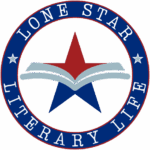Lone Star Literary Life: Mr. Brands, you are a professor of history at UT Austin and a prolific author of American history and biographer of American personalities large and small. Your new book is Dreams of El Dorado: A History of the American West (Basic Books), which will arrive on bookstore shelves on October 22. Please tell us what we should know about your new book.
H.W. Brands: The West was the formative region of the United States during the nineteenth century. It’s history of opportunity, violence, and dreams offered and frustrated encapsulated the history of America.
LSLL: The American West is such a very large topic. How do you even begin researching such a subject and separating myth from reality? Please tell us about your process.
HWB: I’ve been reading about and teaching the West for thirty years. It is a big topic, but I’ve had lots of time.
LSLL: Your many books have tackled specific time periods, such as the post-WWII era, specific personalities, such as FDR and Andrew Jackson, as well as more diffuse concepts, such as democracy and capitalism. Please tell us why you chose American history as your life’s work.
HWB: I’m fascinated by the lives and events that have gone before our own generation. I’d write about world history, but that subject is too ambitious even for me. So I stick to American history.
LSLL: Your subjects have been so varied, how does inspiration strike? Do you have a particular historical period or subject that you enjoy more than others?
HWB: I’m like a magpie. It’s whatever catches my eye. And I need to hear the voices of people from the past—that is, their diaries, letters, and the like. Without those, I’ve got no story.
LSLL: You have taught history for many years, lately at Texas A&M, now at UT Austin. What is your favorite aspect of teaching, and what is the most important concept for students of history to understand? Is there a foundation that supports all further learning?
HWB: My main goal is to spark the students’ interest in the past. If I do that, they will teach themselves for the rest of their lives. They’ll learn more than I could ever impart in a semester.
LSLL: A look at the courses you’ve taught includes an advanced writing class, but it’s not listed among your courses this year. How did you begin writing? Did one of your published books begin life as a doctoral dissertation? What advice do you have for writers just beginning such a journey, and will you teach writing again?
HWB: I started writing in school, the way most students do. I liked it and decided to make it part of my working life. My book Cold Warriors was my dissertation. My advice to beginning writers is: Ask yourself sincerely if you like the process of writing, not simply the finished product. If you don’t like the process—the getting up every day and writing—then find another field.
LSLL: You were born and grew up in Oregon and attending college in California before earning a PhD at UT Austin. Since this is Lone Star Lit, I always ask what Texas means to a writer and their work, and one of your books is Lone Star Nation: How a Ragged Army of Volunteers Won the Battle for Texas Independence—and Changed America. Please tell us about your working theory and goals for this volume and how Texas has influenced your life and work. Do you think your work would be different if you’d remained in Oregon or California?
HWB: I came to appreciate Texas and its complicated history. But only as an outsider—which I think is the best perspective for any history. If you’ve got a dog in the fight, you can’t see clearly.
LSLL: Which writers of history, ancient to contemporary, do you admire and why?
HWB: James Parton and Barbara Tuchman are two of my favorites, though Parton is unknown today and Tuchman largely forgotten.
LSLL: Can you tell us what’s next for you?
HWB: Sorry, I’m not announcing yet.
LSLL: What books are on your nightstand?
HWB: I don’t have a nightstand and don’t read in bed, but I’m reading the short stories of Chekhov at the moment.

